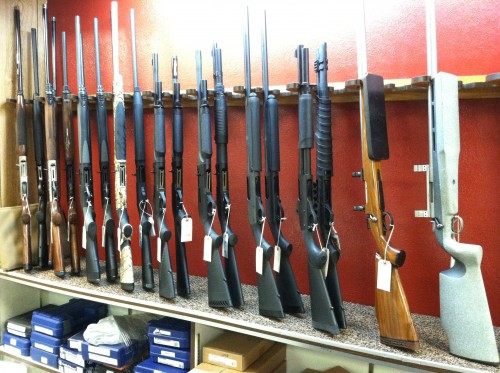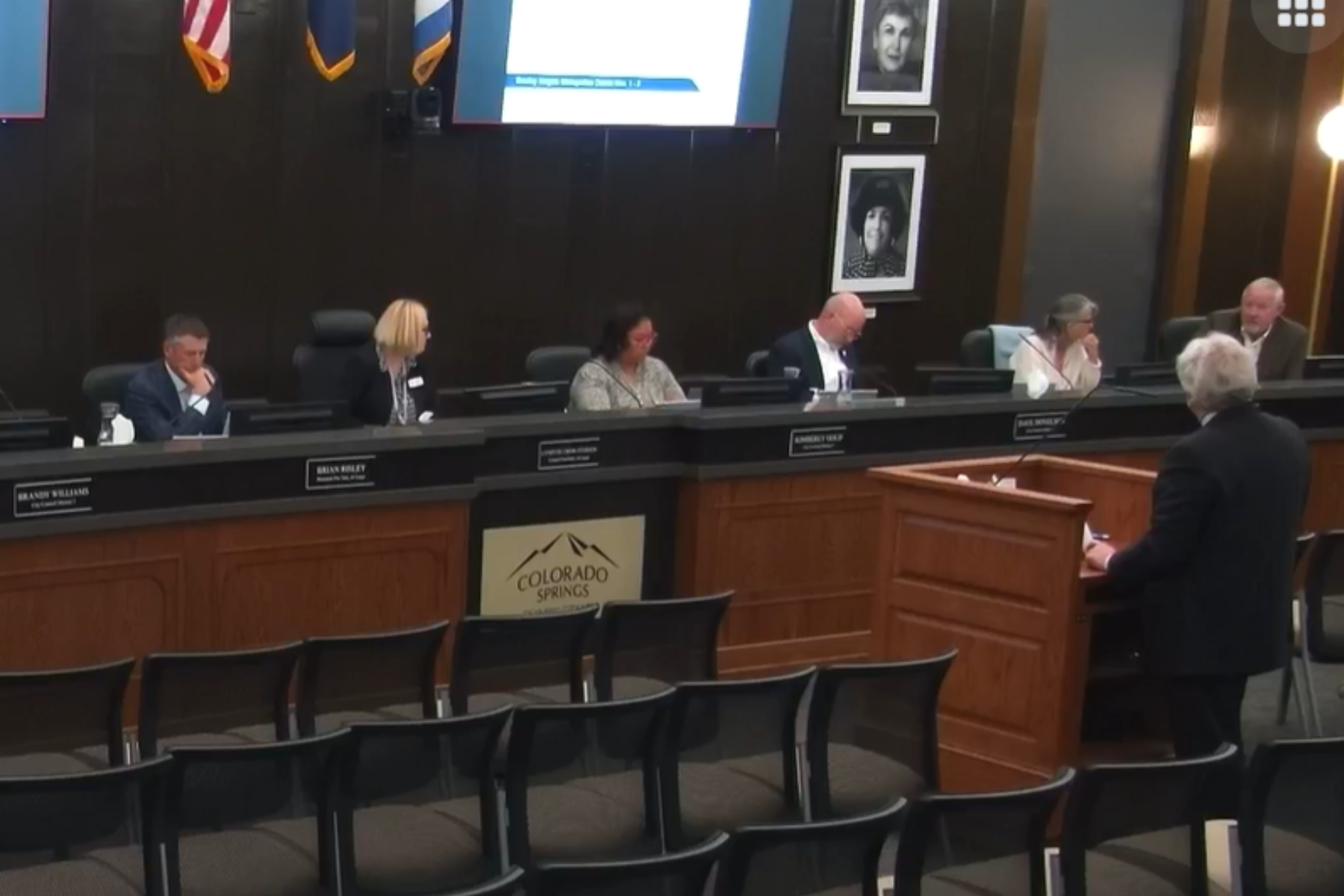
Colorado’s full state Senate takes up the Democratic package of gun bills tomorrow. The debate over gun control is peppered with facts and claims made by both sides, and CPR's Megan Verlee offers some more context fora few of the things you’re likely to hear during tomorrow’s arguments.
Visit CPR's government blog, Check and Balance, to see some of the date behind this reporting.
[The following is a transcript of Megan Verlee's report]
Reporter Megan Verlee: By now I’ve sat through more than 36 hours of gun debates at the Capitol. And I’ve heard lots of facts from both sides, trying to sway lawmakers. Today I’m going to look into four I’ve heard repeated over and over to see if they’re true. First up: a figure that’s often used in arguments over expanding background checks to all gun sales.
Mark Kelly: "You know, in this country today, and I don’t know the exact statistics in Colorado. But nationally, 40% of people that buy a gun, buy a gun without a background check."
Reporter: That was Mark Kelly, husband of former Congresswoman Gabrielle Giffords, who came to testify for the gun bills earlier this week. Here’s the problem: the Washington Post Fact Checker column gives that 40% claim two Pinocchios.
Glenn Kessler, Washington Post reporter: "It seems a little ridiculous that everyone’s quoting a number that’s two decades old."
Reporter: Glen Kessler writes the Fact Checker column. He found three big problems with the study: it was done in the early '90s, the researchers only surveyed around 250 people, and the 40% includes gun owners who couldn’t remember whether they’d gone through a background check or not.
Kessler: "A certain number of these people bought guns before we had instant background checks. The world has completely changed since that survey was done."
Reporter: Another claim gun control supporters, like retired ATF agent David Chipman, have made when arguing for more background checks is this:
David Chipman fmr ATF agent: "The number of women killed with a firearm by an intimate partner is 38% lower in states that have closed the private sale loophole for handguns, than in states that do not regulate such sales. The firearm suicide rate in states that require a background check before every handgun sale is 49% lower than in states that do not require one."
Reporter: Striking numbers. They come from the advocacy group Mayors Against Illegal Guns, which just looked at figures for 2010. I did my own calculations, using data from the University at Albany’s Criminal Justice Sourcebook, and it would appear the firearms suicide rate is much lower for states with wider gun background checks, although as my old statistic professor would say, showing that two numbers are related doesn't mean that one causes the other.
Now, do those states with more background checks also have fewer domestic violence killings? That one’s trickier. Nationally, fewer than 700 women were shot to death by their partners in the year the group analyzed. That’s a dangerously small number to draw state-by-state comparisons from, according to a university statistician I talked with.
So those are some of the numbers that figure big in the debate over expanding background checks to all gun sales. Claim number three comes from the gun rights side, and I’ll let Representative Carole Murray of Castle Rock make it.
Rep. Carole Murray [R-Castle Rock]: "Most of the mass killings that we talk about have been affected in gun free zones. So when you have a gun free zone, it’s like saying, 'come and get me.'"
Mark Follman, Senior Editor, Mother Jones: "In all of the 62 cases that we studied of mass shootings, we found no evidence to support that."
Reporter: Mark Follman’s spent much of the past year analyzing shooting sprees for Mother Jones, a left-leaning magazine. I looked at the data he’s compiled, and in the majority of these crimes, the killers had some existing connection with the location. Often it was where they worked or went to school. And with the rest of the shootings, Follman says he’s found no solid information one way or the other about why killers went where they did.
Follman: "In all of these cases, we found no evidence that a shooter specifically chose to go to a location because it was a so-called gun free zone."
Reporter: The final claim we’re looking at has been made several times by Independence Institute researcher Dave Kopel, who’s testified against a bill limiting the size of ammunition magazines. Kopel cites studies that found a federal ban on larger magazines didn’t reduce violence.
Dave Kopel, Research Director, Independence Institute: "The interim studies, and then the final studies, conducted by the Urban Institute, which is a left-leaning think tank in Washington, DC, their final report said, this had no beneficial effect, it didn’t save lives."
Reporter: It’s true, researchers found that in the decade after they were banned, there was no drop in how frequently large-capacity magazines were used in crimes, although they only looked at data for four cities. And the researchers said because there were still lots of higher capacity magazines out in circulation, it might take longer for any effects to emerge. Congress let the ban expire shortly after their study.
So that’s how four often-cited “facts” from the gun debate check out. It’s a good reminder that little about this issue is as simple as it seems.









